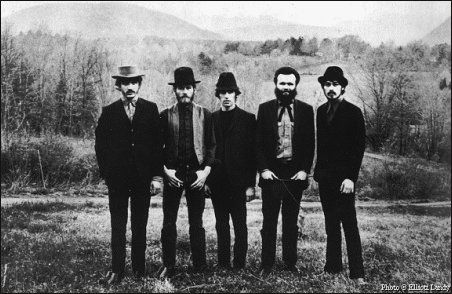The Birth of the Blues & The Mississippi Delta
- Gabrielle Bossy

- Mar 26, 2017
- 3 min read
Updated: Sep 12, 2018
Deep in the heart of the Mississippi Delta, from Memphis to Vicksburg to Helena, Arkansas all the way to the Yazoo River, a rural tradition was born. Born out of this region, The Delta Blues are steeped in rich traditions that have made the music a style that has stood the test of time and influenced thousands of musicians since its inception.
In the beginning…
The Delta Blues have roots in the African slave trade and on southern cotton plantations where the music of several African cultures came together in field hollers (pbs.org). Through these songs, slaves communicated with each other, often about their hardships and struggles.
Naturally, many Delta Blues musicians had worked on such plantations. While the Delta Blues were not recorded until the 1920s, their start was actually much earlIer at the beginning of the 1900s and the roots extended further back than even that (Britannica.org).

The Style of the Delta Blues
The Mississippi Delta gave birth to a style of blues different from its counterparts in country, Chicago and Detroit blues. Male-dominated for the most part (Britannica.org), The Delta Blues were characterized by solo performers and instruments that included hollow bodied guitars played with home made slides (often from glass bottle necks or box cutters) and harmonicas. The lyrics would range topics from travelling on the open road to risqué sexcapades and loves lost (Brittanica.org). The rhyming patters were often uneven, the melody was often non existent and vocals moaned(pbs.org) . What sounds like something awful on paper though, was actually the creation of something completely beautiful and authentic in real life. The Delta Blues are plagued by raw passion, hurt and simplicity.
The Delta Blues were also the first guitar-based style of blues to be recorded (dummies.com). Robert Johnson, Son House and Charley Patton among others were all fantastic Delta Blues musicians whose music lives on today (and were actually lacking in success through much of their careers). When not being recorded, the music was played in random pockets at places like train stations, on farms, at house parties and at places called “juke joints”. These performances helped to craft a regional style of blues that had an incredibly long- lasting impact.

Son House, Photo c/o: Alchetron.com
The Legacy
After WWII, a lot of traditional blues music became unpopular but The Delta Blues managed to persist. Classic Delta artists like Charley Patton managed to pass on the tradition by teaching musicians like Howlin’ Wolf. From there, musicians like Howlin’ Wolf and Muddy Waters brought the style north to Chicago where the Chicago Blues were born (around the 1940s) and eventually to Detroit (mshistorynow.mdah.state.ms.us).
The blues went from solo performers with acoustic guitars to full bands with electric. Mixing and melding with the American folk movement, the blues eventually seeped into almost every music genre and made an impact. From the Beatles to Zeppelin to Bob Dylan, the blues have made their mark and continue to do so today.

Delta Blues Musicians to Check Out
If you like what you read and want to check out some great Delta Blues artists here’s a short list:
– Son House
– Charley Patton
– John Lee Hooker
– Muddy Waters
– Big Joe Williams
– Mississippi Fred McDowell
– Lead Belly
– Robert Johnson
There are so many more but that should get you started!
Are there more blues topics you’re interested in? Let me know in the comments below!
Peace, love & history.



Comments